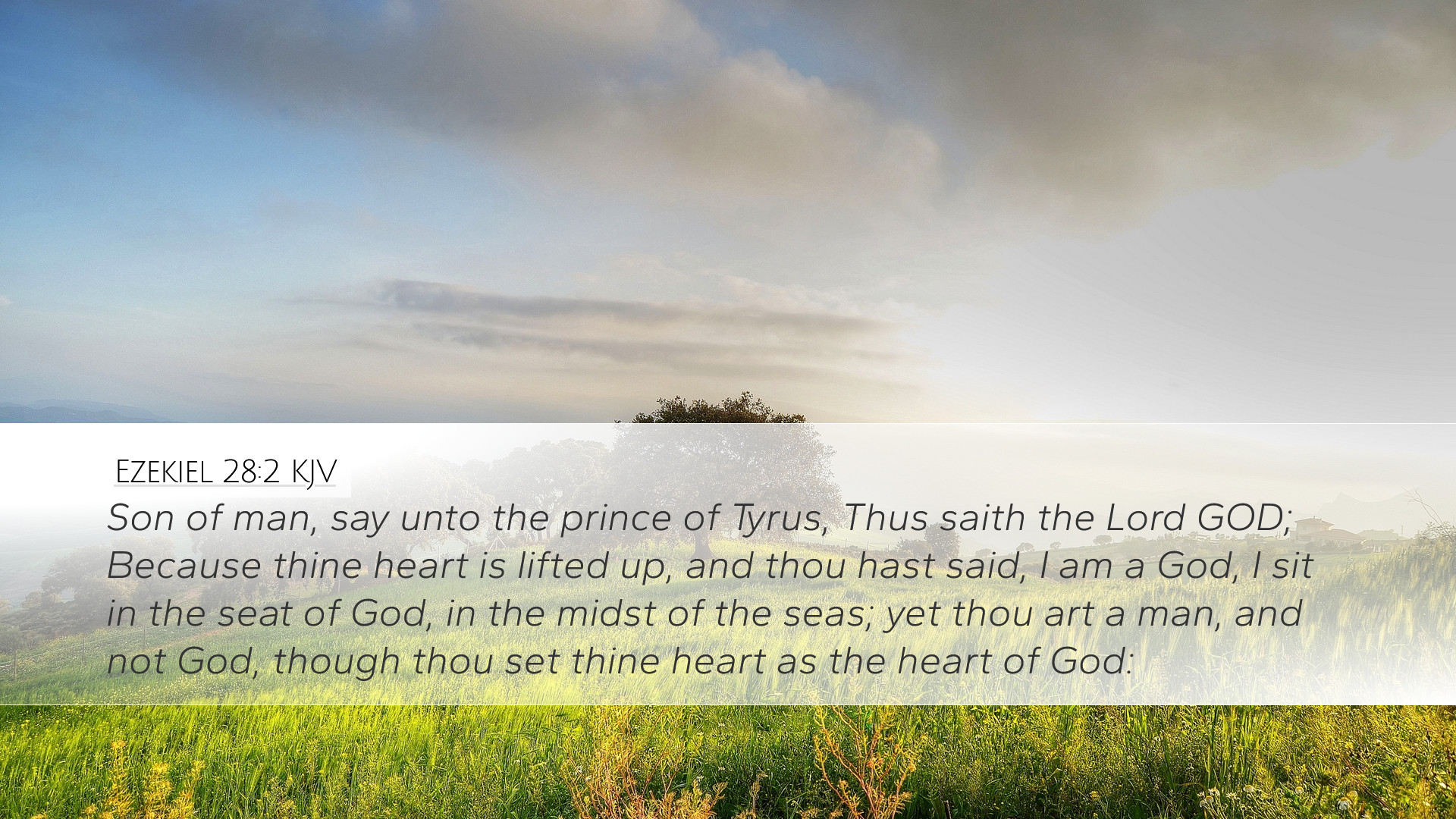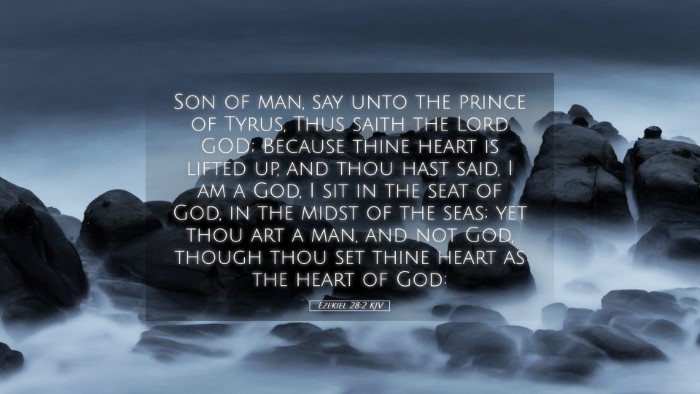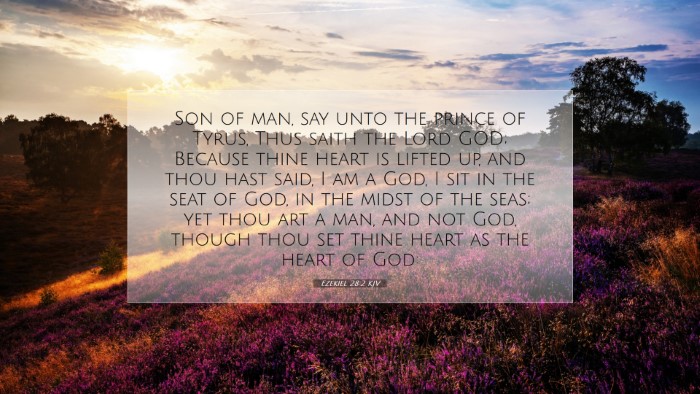Ezekiel 28:2 Commentary
Text of Ezekiel 28:2 (NIV): "Son of man, say to the ruler of Tyre, 'This is what the Sovereign Lord says: In the pride of your heart you say, “I am a god; I sit on the throne of a god in the heart of the seas.” But you are a mere mortal and not a god, though you think you are as wise as a god.'
Introduction
Ezekiel 28:2 presents a profound declaration regarding pride and human arrogance in the face of divine sovereignty. This verse addresses the ruler of Tyre, often interpreted as a symbol of arrogance and hubris. The exploration of this text reveals crucial theological insights relevant to modern pastors, theologians, and students of the Word.
The Context of Ezekiel 28
The context of Ezekiel 28 is critical for understanding the depth of this verse. The chapter addresses various subjects, including the lamentation for the king of Tyre, the condemnation of his pride, and the cosmic implications of his actions.
Historical Background
Tyre was a prosperous city-state known for its wealth, commerce, and maritime dominance. The ruler's pride, as pointed out here, reflects a broader theme of self-deification, where leaders and nations elevate themselves to a godlike status.
Commentary Insights
Matthew Henry’s Insight
Matthew Henry emphasizes that the ruler of Tyre claimed divinity and authority, which is a manifestation of human pride. Henry comments on the audacity of the ruler to equate himself with God, drawing attention to the dangers of such hubris.
- Human Mortality: Henry asserts, “Though you have elevated yourself, you are still a man, and your mortality cannot be overlooked." This humbling reminder serves as a sobering thought for leaders.
- Divine Sovereignty: The phrase “but you are a mere mortal” serves as a pivotal reminder that regardless of worldly power, God remains sovereign. This echoes throughout biblical texts where human pretensions are consistently thwarted by divine authority.
Albert Barnes’s Perspective
Albert Barnes further unpacks the themes of pride and self-deception. He points out that the ruler’s claim to be a god is reflective of an internalized delusion fostered by success and power.
- Illusion of Control: Barnes states that the phrase “I sit on the throne of a god” illustrates the false sense of stability and control often experienced by rulers. Such an illusion leads to spiritual blindness.
- Accountability: Barnes warns that regardless of earthly achievements, all authority is subject to divine judgment. The text stresses that the ruler will ultimately answer to God for his pride and actions.
Adam Clarke’s Interpretation
Adam Clarke’s analysis dives into the rhetorical nature of Ezekiel’s message. He suggests that the strong language serves not only as condemnation but also as a call to reflection for all who wield power.
- Call to Humility: Clarke argues that the underlying message is a call for humility among leaders. True wisdom lies in recognizing one’s limitations and the omnipotence of God.
- Cosmic Implications: The mention of the “heart of the seas” suggests a place of power and influence. Clarke interprets this as a metaphor for the ruler's reach, emphasizing that no matter how vast one’s influence may appear, it is insignificant compared to God’s domain.
Theological Implications
This verse invites reflection on the relationship between human authority and divine sovereignty. The ruler's self-identification as a god poses essential questions regarding the nature of leadership, responsibility, and humility before God.
Pride as a Spiritual Downfall
Throughout Scripture, pride is consistently portrayed as a precursor to spiritual downfall. Ezekiel 28:2 encapsulates this principle by illustrating how elevated status can warp one’s perception of reality.
- Proverbs 16:18: “Pride goes before destruction, a haughty spirit before a fall.” This verse resonates with the warning given to the ruler of Tyre.
- Revelation of True Identity: The call to recognize one’s mortal identity serves as a poignant reminder of humanity’s dependence on God.
Application for Contemporary Leaders
The messages of Ezekiel 28:2 are relevant for contemporary Christian leaders. In a world where success can easily lead to arrogance, this verse provides a crucial warning against equating authority with divinity.
- Embrace Humility: Leaders are called to exhibit humility, recognizing their reliance on God’s wisdom rather than their own.
- Seek God’s Guidance: Rather than asserting dominion, leaders should seek God’s guidance in their decision-making processes.
Conclusion
Ezekiel 28:2 serves as a timeless reminder of the perils of pride and the necessity of humility in leadership. The profound insights from commentators like Matthew Henry, Albert Barnes, and Adam Clarke illuminate the dangers posed by self-deification and the importance of recognizing divine sovereignty. They challenge both ancient and modern leaders to acknowledge their mortality and dependence on God, fostering a culture of humility and accountability.


